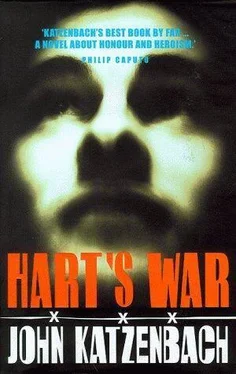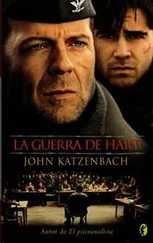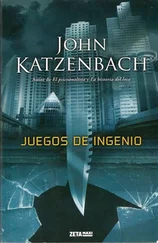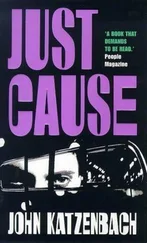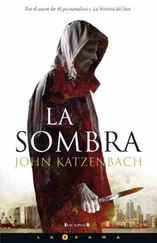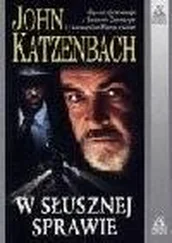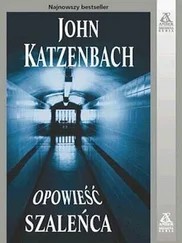John Katzenbach - Hart’s War
Здесь есть возможность читать онлайн «John Katzenbach - Hart’s War» весь текст электронной книги совершенно бесплатно (целиком полную версию без сокращений). В некоторых случаях можно слушать аудио, скачать через торрент в формате fb2 и присутствует краткое содержание. Жанр: Триллер, на английском языке. Описание произведения, (предисловие) а так же отзывы посетителей доступны на портале библиотеки ЛибКат.
- Название:Hart’s War
- Автор:
- Жанр:
- Год:неизвестен
- ISBN:нет данных
- Рейтинг книги:5 / 5. Голосов: 1
-
Избранное:Добавить в избранное
- Отзывы:
-
Ваша оценка:
- 100
- 1
- 2
- 3
- 4
- 5
Hart’s War: краткое содержание, описание и аннотация
Предлагаем к чтению аннотацию, описание, краткое содержание или предисловие (зависит от того, что написал сам автор книги «Hart’s War»). Если вы не нашли необходимую информацию о книге — напишите в комментариях, мы постараемся отыскать её.
Hart’s War — читать онлайн бесплатно полную книгу (весь текст) целиком
Ниже представлен текст книги, разбитый по страницам. Система сохранения места последней прочитанной страницы, позволяет с удобством читать онлайн бесплатно книгу «Hart’s War», без необходимости каждый раз заново искать на чём Вы остановились. Поставьте закладку, и сможете в любой момент перейти на страницу, на которой закончили чтение.
Интервал:
Закладка:
The huge crowd of kriegies stood stock-still, quiet, listening.
The band played nonstop for close to thirty minutes, until the members seemed red-faced, like sprinters exhausted by the effort, gasping for air. The leader, sweat dripping from his forehead, lifted his left hand from the trumpet as they swept into the final searing bars of
"Take the A Train," raising it high above his head, and then abruptly sliced it down through the air, and the band, on cue, stopped.
There was no applause. Not a sound emerged from the massive crowd of men.
The band leader looked across at the members of the group and nodded his head slowly. Sweat and tears mingled freely on his face, glistening on his cheeks, but his lips had creased into a half-smile of sorts, one that appreciated what they'd done, but still twisted with the sadness of the reason. Tommy Hart did not see or hear the command, but the band abruptly stepped into parade rest positions, instruments held like weapons at their chests. The band leader walked over to a trombonist, handed the man his own trumpet, then did a sharp about-face, quick-marching to the wire and picking up the lone clarinet. Still facing out to the woods and the great world beyond the wire, the band leader lifted the instrument to his lips and trilled out a single, long slow scale. Tommy did not know if the man was improvising or not, but he listened carefully as the clear, smooth notes of the clarinet danced through the air. Tommy thought the music not unlike the birds he was used to seeing in the rolling fields of his Vermont home in the fall, just before the great migrations south. When alarmed, they would rise up into the air in unison, milling about for a moment or two, then suddenly taking wing and, gathering together, flying en masse off into the sun. That was what the clarinet's tunes were doing. Rising up, searching to find shape and organization, then soaring off into the distance.
The last note seemed especially high, especially lonesome.
The band leader stopped, slowly lowering the instrument from his lips.
For an instant he held the clarinet against his chest. Then he pivoted sharply and called out a command:
"Stalag Luft Thirteen Prisoner Jazz Band… attention!"
The band snapped together, like the carefully fitted pieces of a machine.
"By column of twos… about-face! Drummer please… forward march!"
The jazz band began to move away from the wire. But where before they had been quick-marching, now they moved slowly, deliberately. A funeral cadence, each right foot hesitating slightly before falling to the earth. The drummer's beat was slow and doleful.
The mass of kriegies parted, letting the band march through, moving at just more than a crawl, then closed ranks behind them, as the prisoners slowly returned to whatever activity they could find to get them through the next minute, the next hour, the next day of confinement.
Tommy Hart glanced up. The two German guards in the tower continued to train their machine gun on the gathering of men. They were grinning.
They don't know, he thought to himself, but for just a few minutes there right in front of their eyes and their weapons we all became free men once again.
He had some time before the afternoon count, so Tommy returned to his bunk room to get a book. Each hut at Stalag Luft Thirteen was constructed from a combination of prefabricated wood and beaverboard, drafty and cold in the winter, stifling hot in the summer. When it rained, and the men were forced indoors, the rooms gained a musty, green odor, a smell of sweat and confinement. There were fourteen rooms in each hut, each holding eight men in bunks. The kriegies had learned that by moving one of the beaverboard walls just a few inches, they could create hollow spaces between the walls, which were used for concealing escape items ranging from uniforms recut to resemble ordinary suits to picks and axes used by tunnelers.
Each hut contained a small washroom with a sink, but showers were located in a building between the North and South camps, and men needed an escort to use them. They were not used regularly. Each hut also included a single working toilet, but it was operated only at night, after lights out. During the day, the kriegies utilized outside privies.
These were known as Aborts, and accommodated a half-dozen men at a time. They afforded a slight degree of privacy-wooden partitions separated the polished wooden seats. The Germans provided adequate supplies of lime, and Abort details liberally scrubbed the area with strong disinfecting GI soap. Each pair of huts shared an Abort, which was located between the buildings.
The men cooked for themselves, each hut maintaining a rudimentary kitchen with wooden stove. The Germans provided some minimal rations, mostly potatoes, terrible-tasting blood sausage, turnips, and kriegsbrot-the hard, dark war bread upon which the entire nation seemed to exist. Kriegies were inventive cooks, coaxing varied and different tastes from the same foodstuffs by mixing and matching. The food parcels either shipped by relatives or issued by the Red Cross were the foundations for their meals. The men were always hungry, but rarely starving, although to many the distinction seemed narrow.
Stalag Luft Thirteen was a world within a world.
There were daily classes in art and philosophy, musical performances almost nightly in Hut 112, which had been dubbed The Luftclub, and a theater with its own regular troupe. It was currently performing The
Man Who Came to Dinner to rave reviews in the camp newspaper. There were spirited athletic competitions, including a storied softball rivalry between the top team in the South compound and a squad from the
British North camp. The British did not totally understand many of the subtleties of baseball, but two of the pilots in their camp had been bowlers for the national cricket team before the war, and they had adapted quickly to the concept of throwing strikes. There was a lending library, which kept an eclectic combination of mysteries and classics.
Tommy Hart, though, had his own collection of books.
He had been midway through his third year at Harvard Law School when Pearl Harbor had been bombed. While some of his classmates had deferred enlisting until the end of the academic year and graduation, he had quietly joined a line outside the recruiting station near Faneuil Hall in downtown Boston. He had put down the air corps on his recruitment papers on a whim, and several weeks later had carried his suitcase across Harvard Yard in the midst of a January snowstorm, heading toward the T, a ride to South Station, and a train to Dothan, Alabama, and flight training.
Shortly after his capture, he'd filled out a form for the International Red Cross that was supposed to notify his family that he still lived.
He'd left much of the form blank, not fully trusting the Germans who would process the document.
But near the bottom had been a space that requested special items needed. On this line he'd written, mostly as a lark: Edmund's Principles of Common Law, Third Edition, 1938, University of Chicago Press. To his surprise, the book was waiting for him when he arrived at Stalag Luft Thirteen, although it had been mailed by the YMCA organization.
Tommy had clutched the thick volume of legal precedents to his chest throughout his first night at the camp, like a child would hold a favorite and reassuring teddy bear, and for the first moment since he'd seen the flames streaking across the Lovely Lydia's right wing, actually dared to think he might survive.
Edmund's Principles had been followed in quick order by Burke's Elements of Criminal Procedure and by texts on torts, wills, and civil actions. Tommy had acquired works on legal history and a secondhand but valuable copy of the life and opinions of Oliver Wendell Holmes. He had also requested a biography and selected writings of Clarence Darrow. He was particularly interested in the man's famous jury summations.
Читать дальшеИнтервал:
Закладка:
Похожие книги на «Hart’s War»
Представляем Вашему вниманию похожие книги на «Hart’s War» списком для выбора. Мы отобрали схожую по названию и смыслу литературу в надежде предоставить читателям больше вариантов отыскать новые, интересные, ещё непрочитанные произведения.
Обсуждение, отзывы о книге «Hart’s War» и просто собственные мнения читателей. Оставьте ваши комментарии, напишите, что Вы думаете о произведении, его смысле или главных героях. Укажите что конкретно понравилось, а что нет, и почему Вы так считаете.
